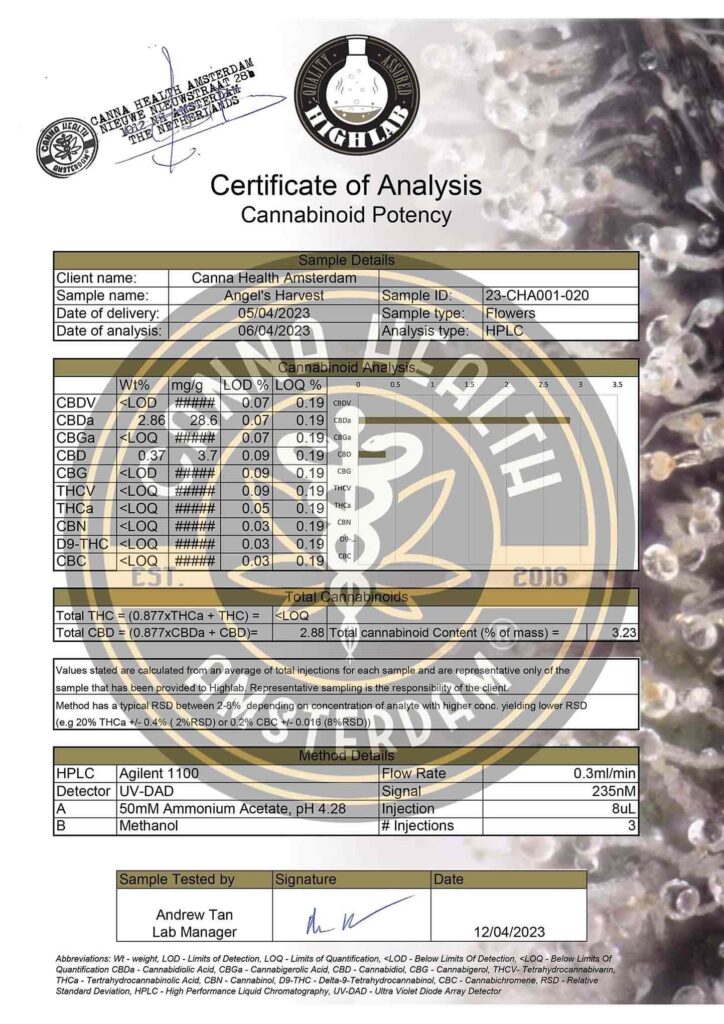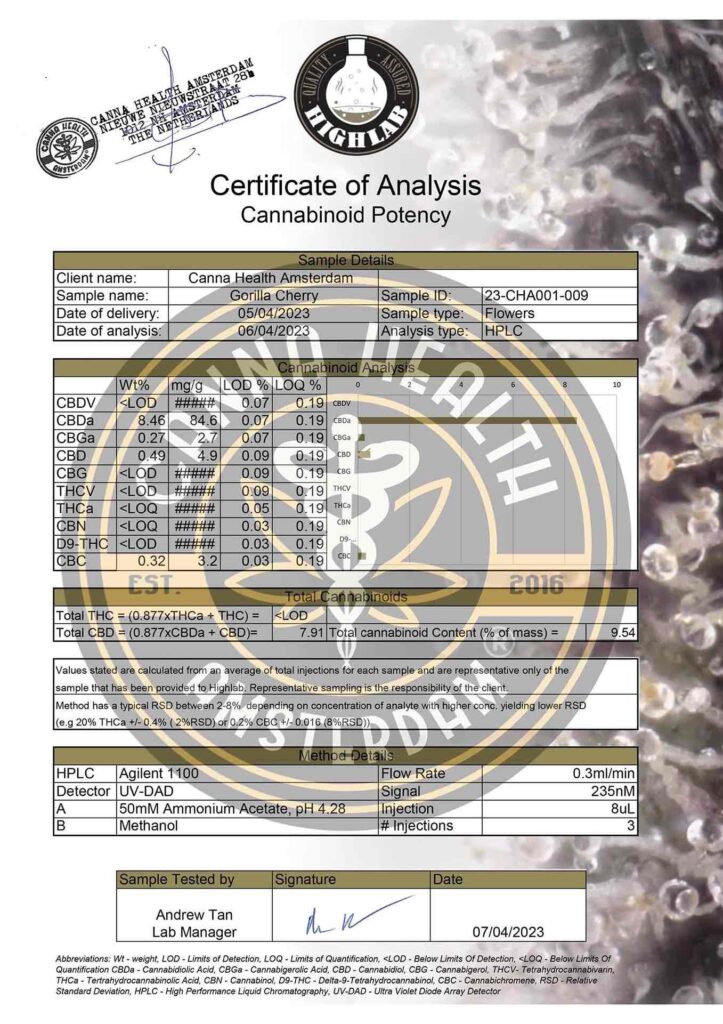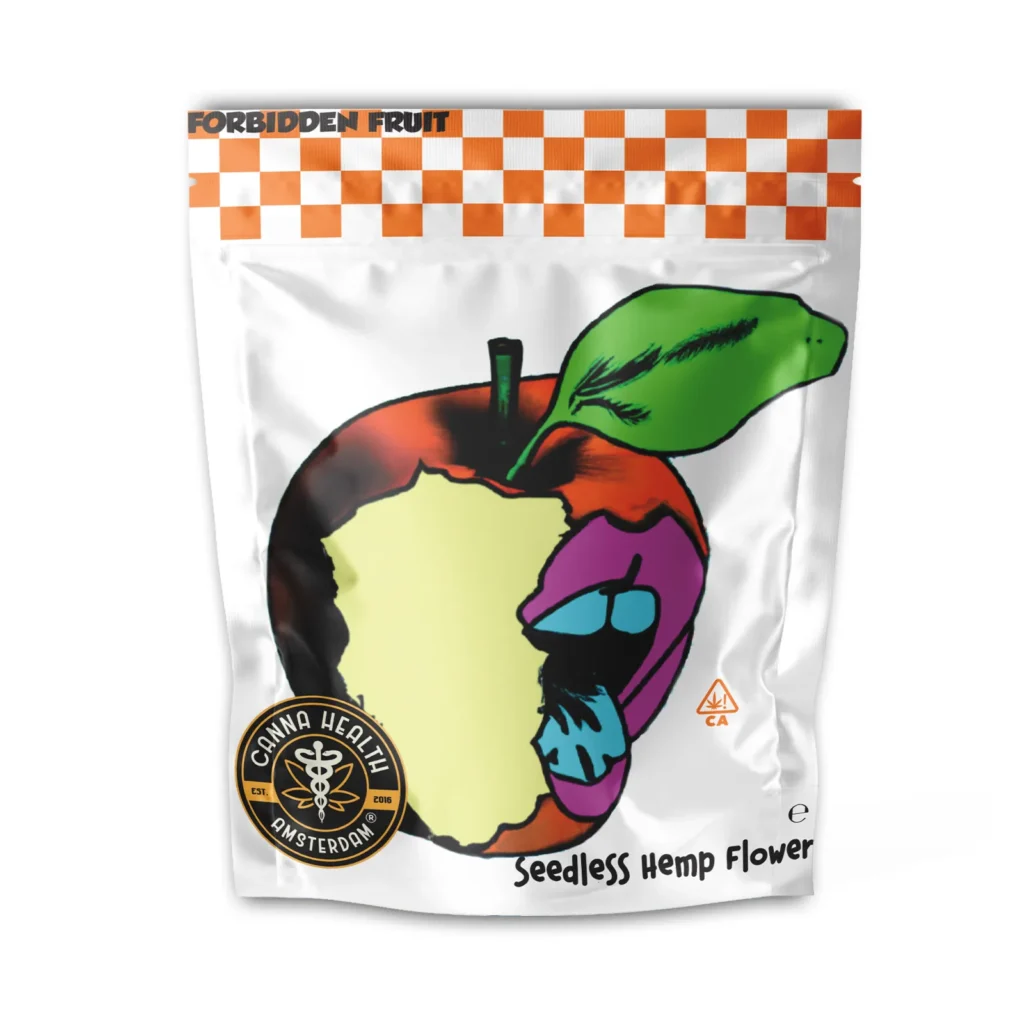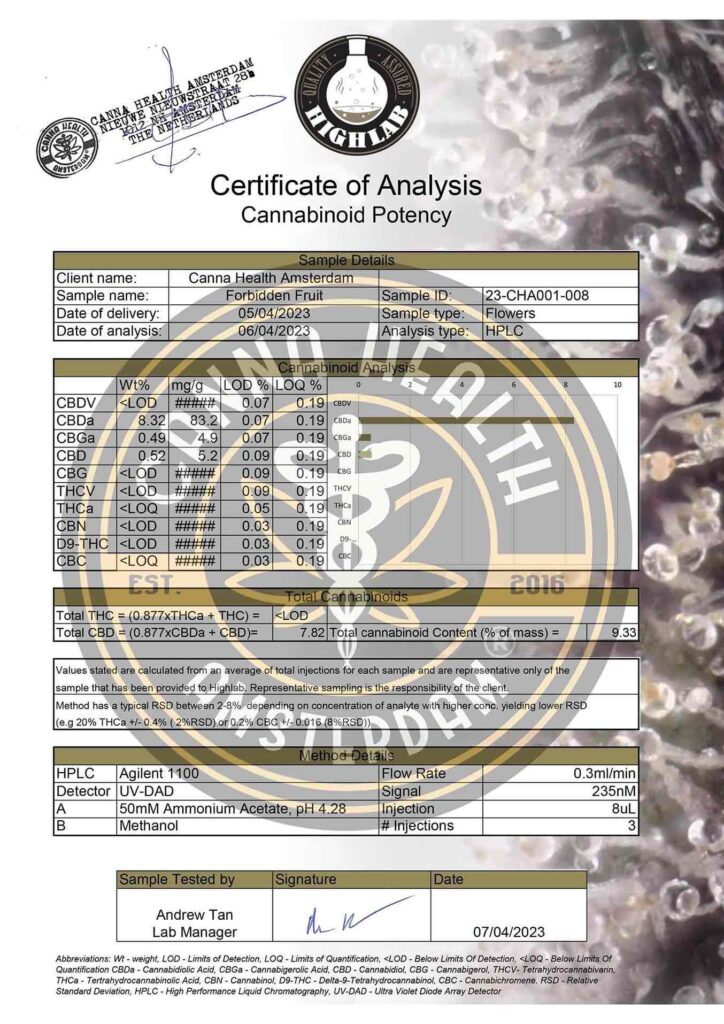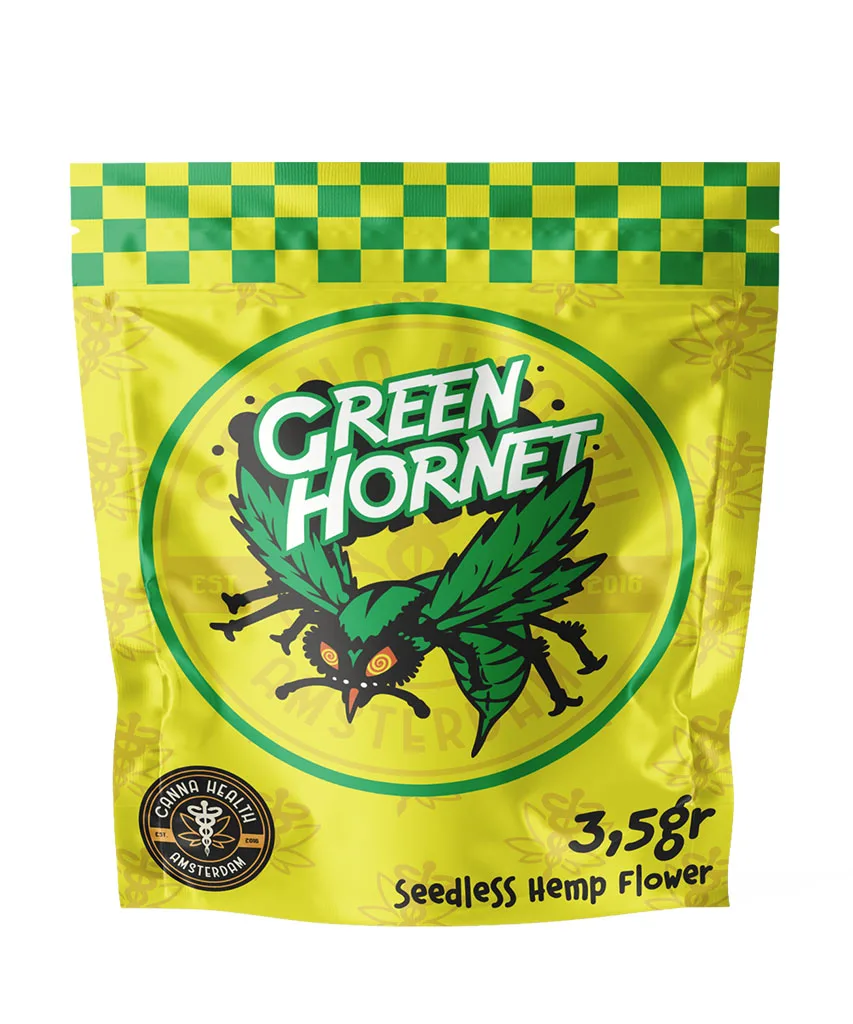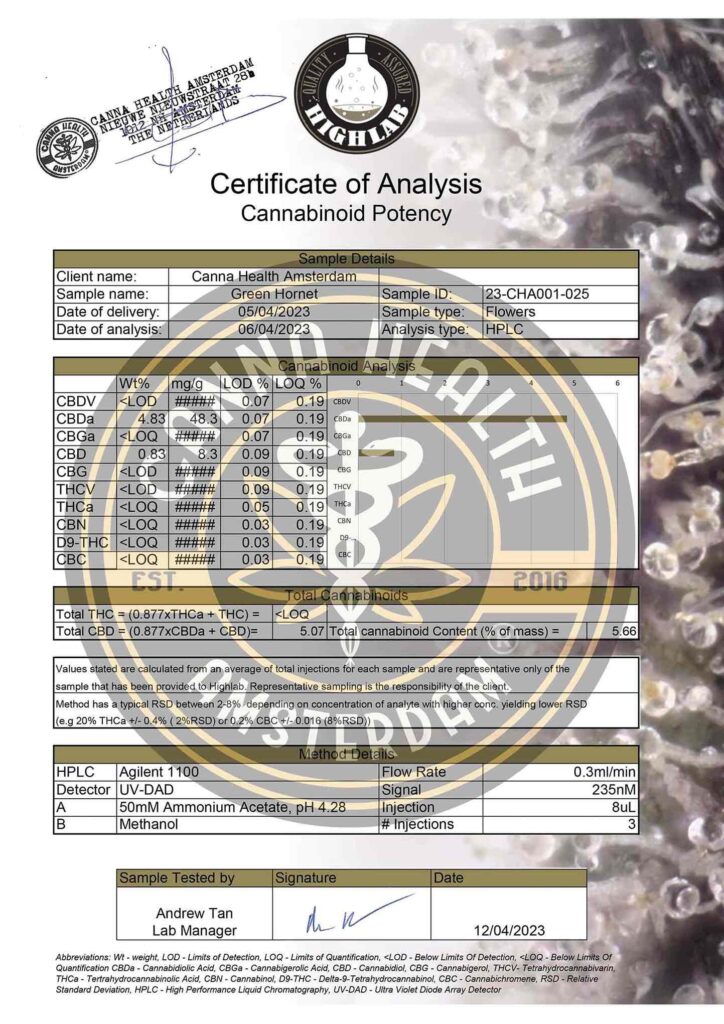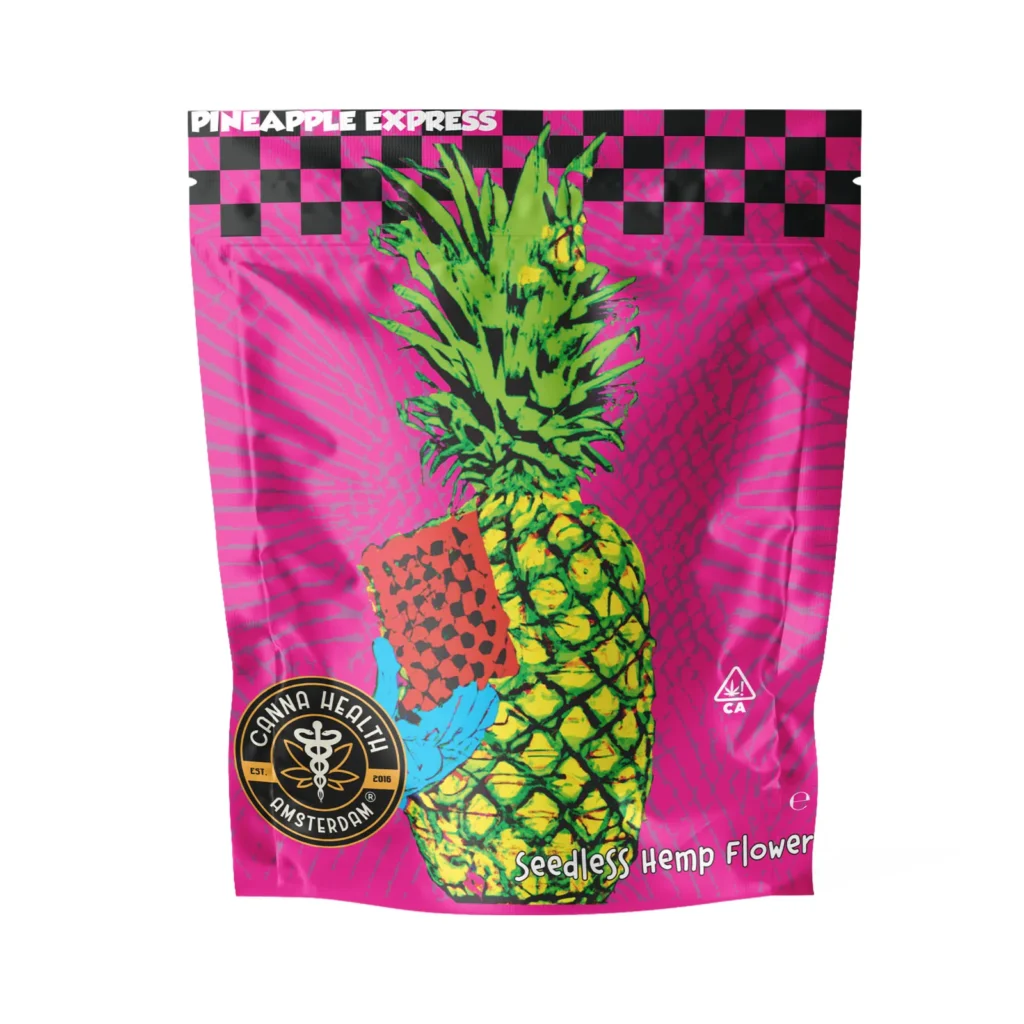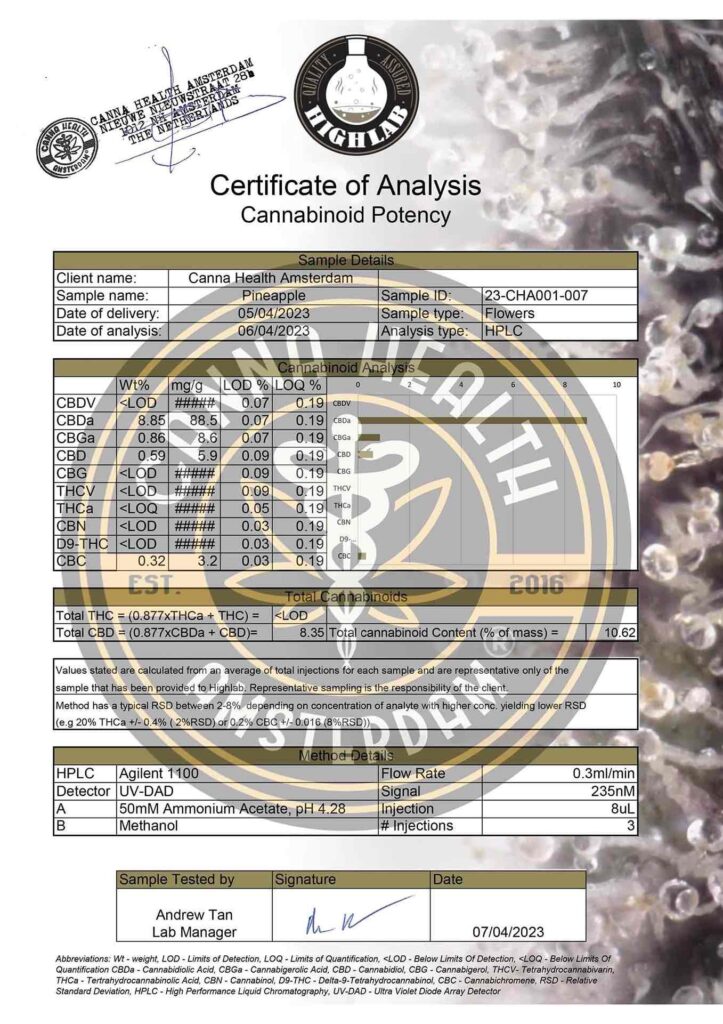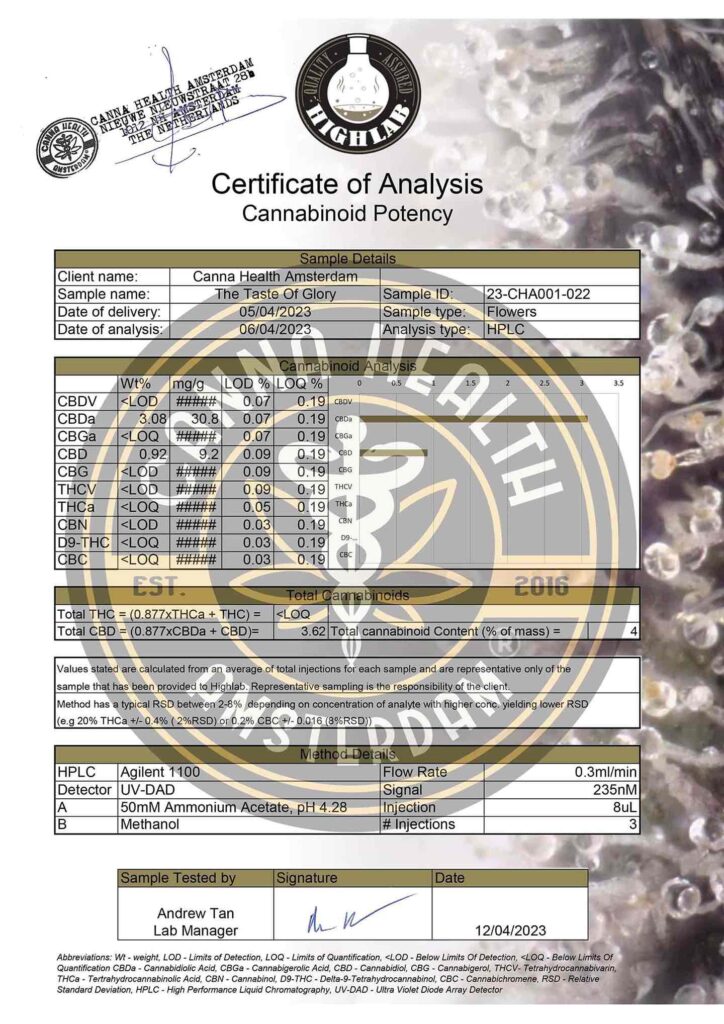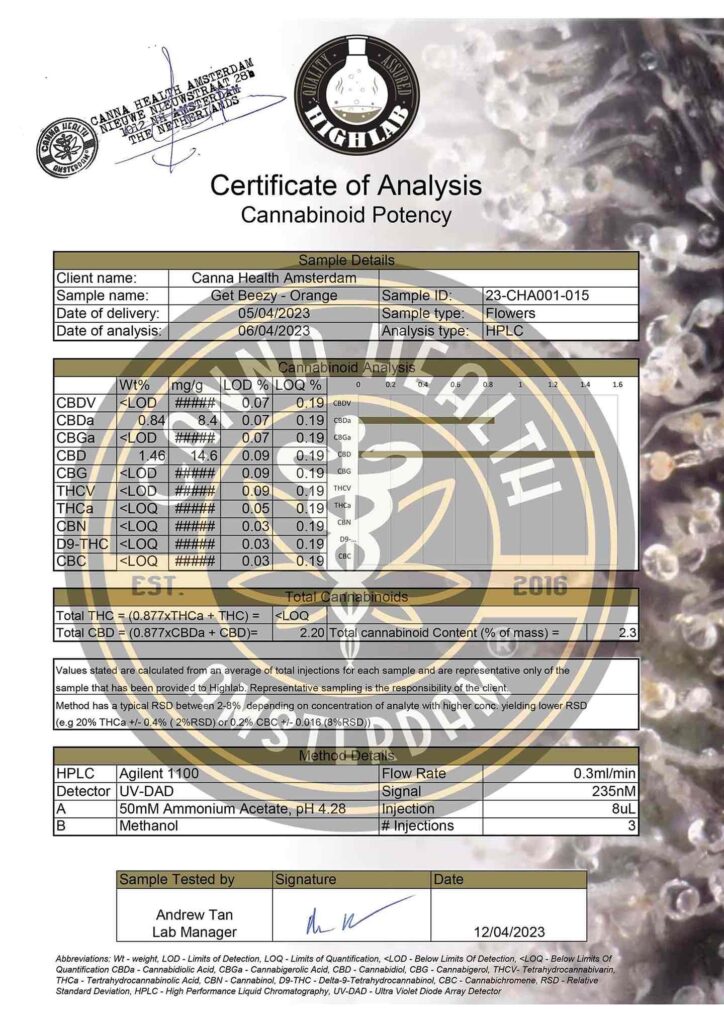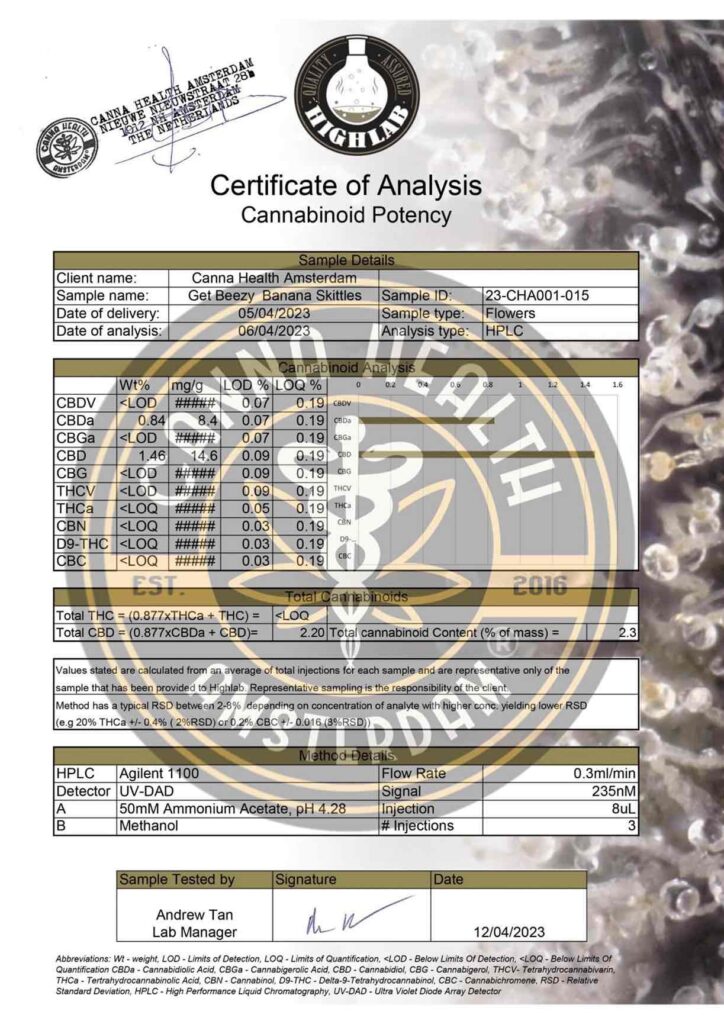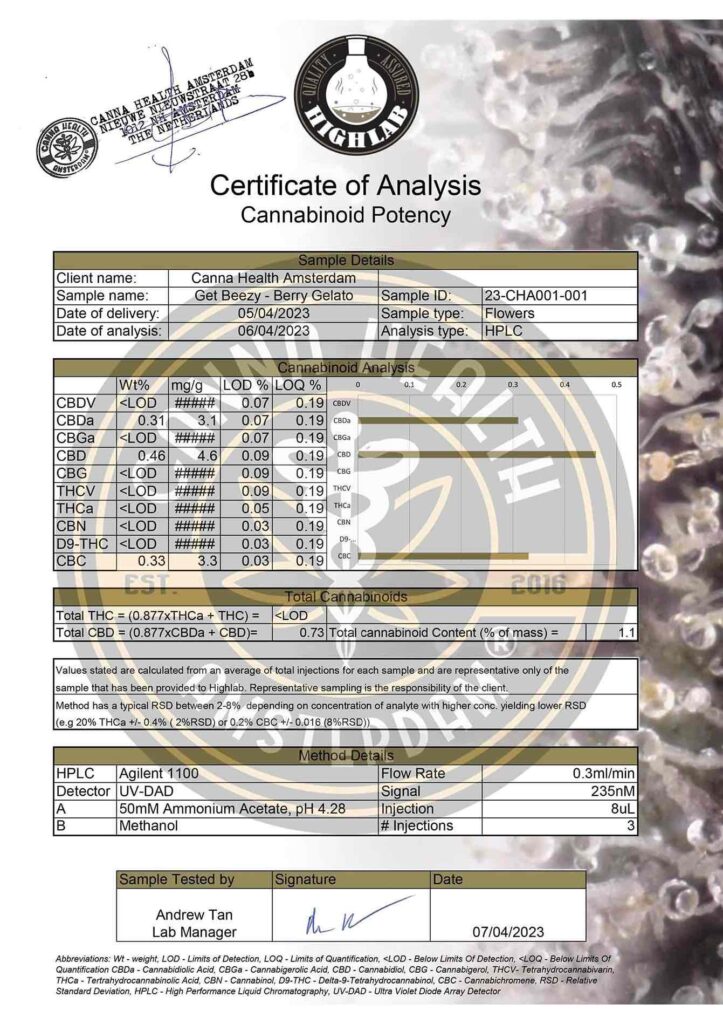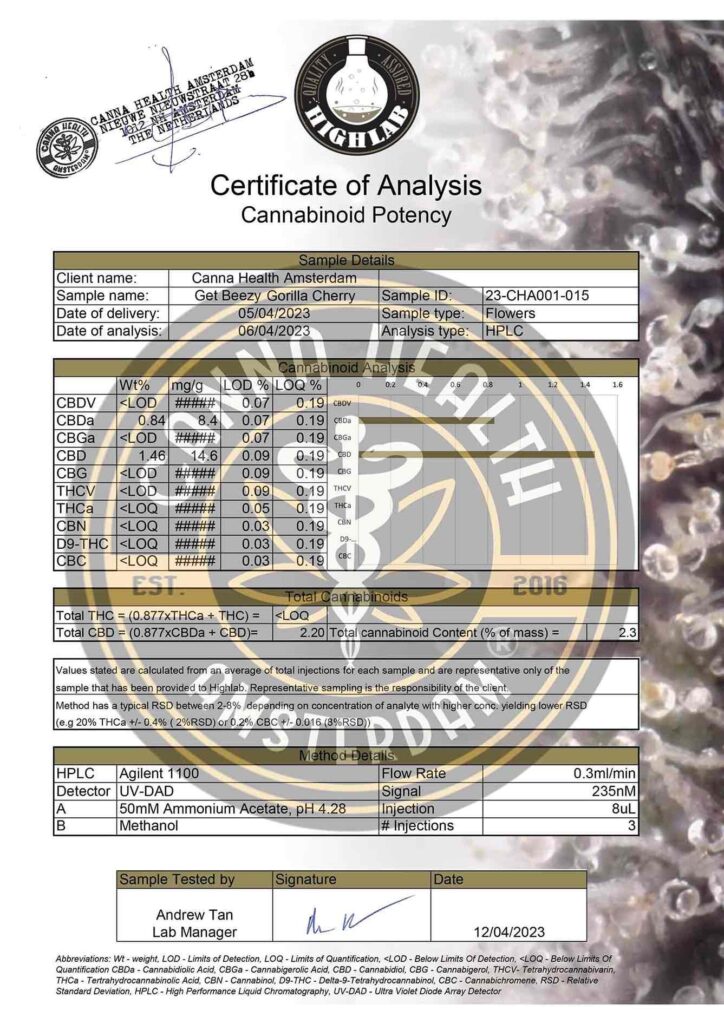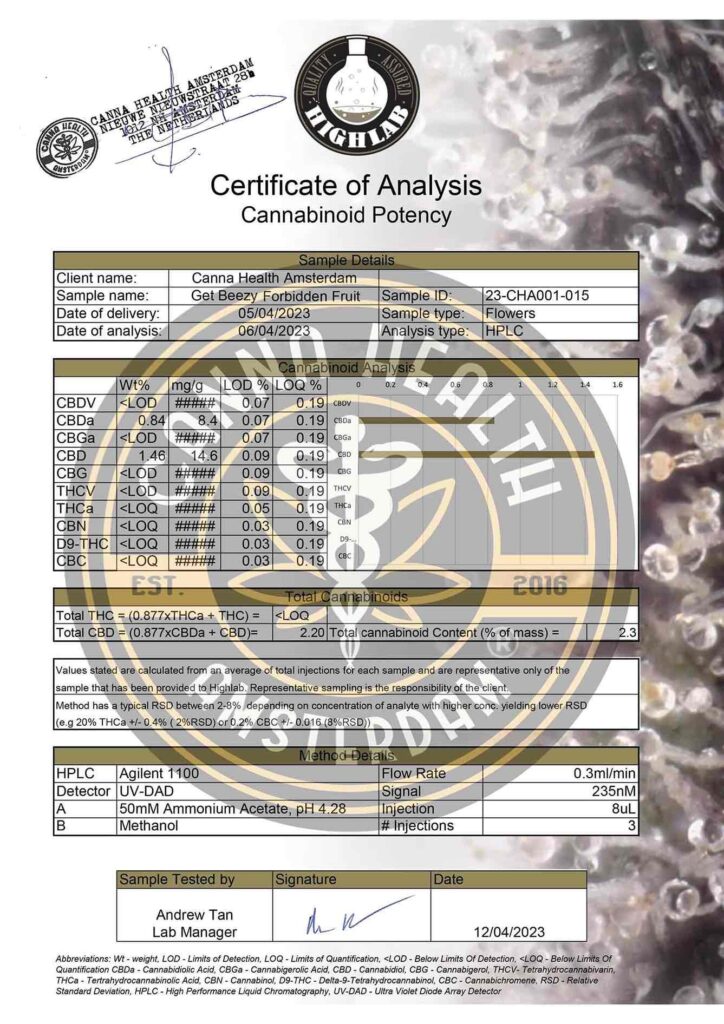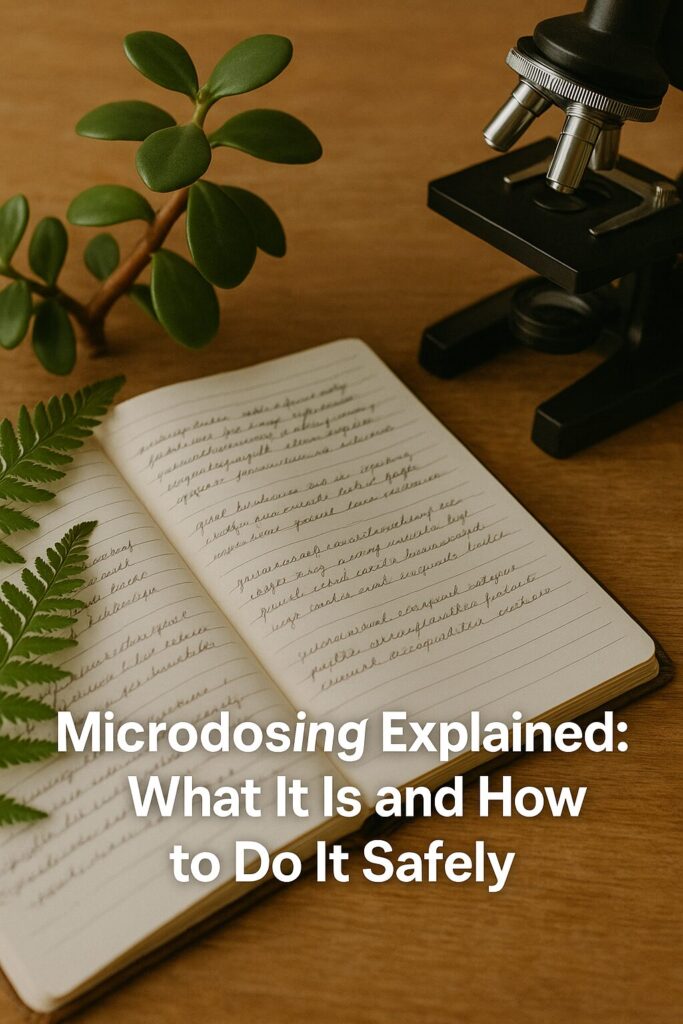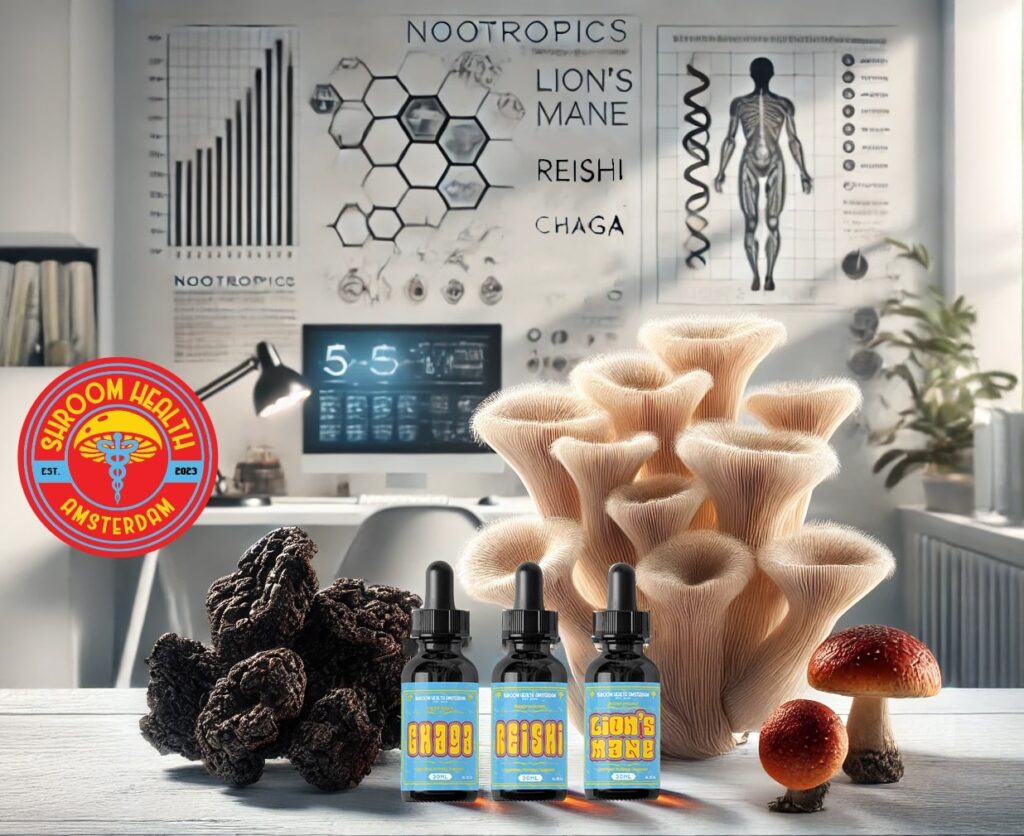THCp: A Revolutionary Cannabinoid Reshaping Cannabis Science
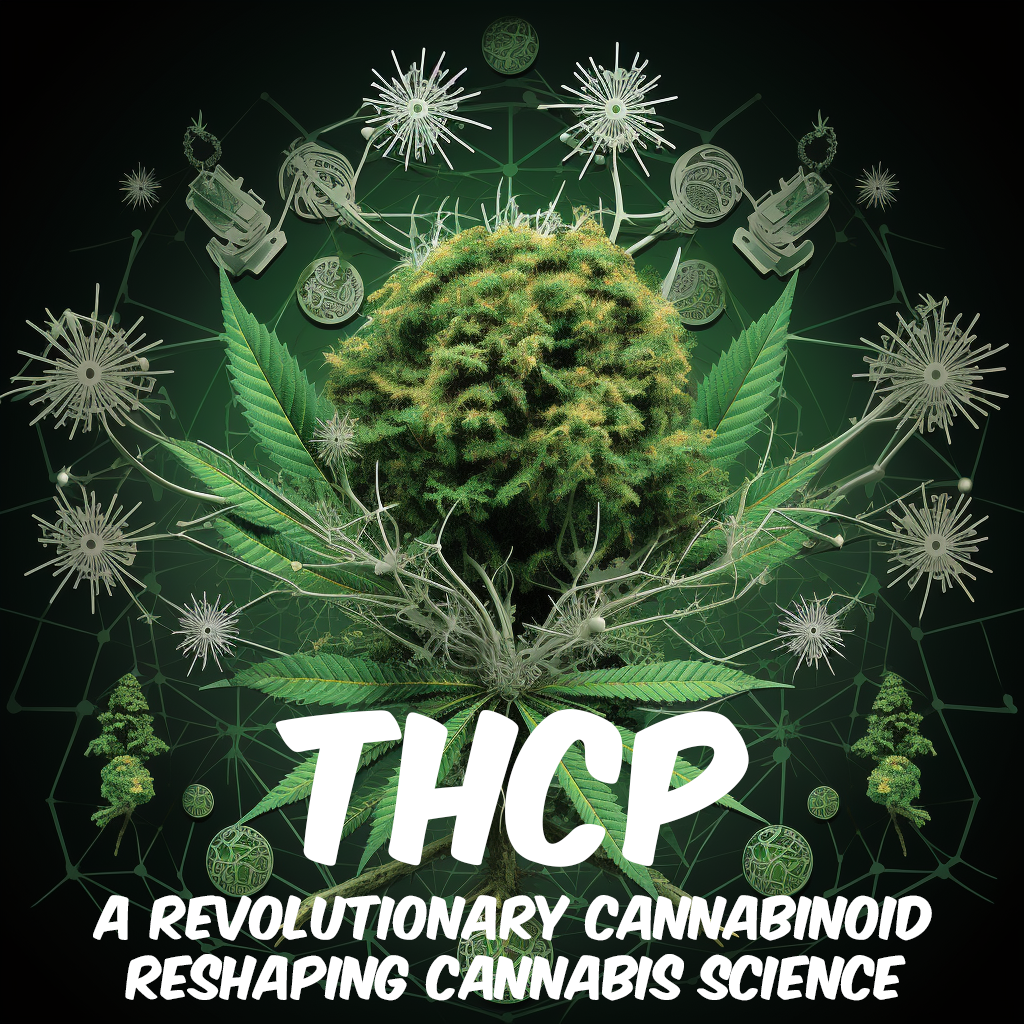
This article reflects information available at the time of publication.
Canna Health Amsterdam now classifies compounds such as THC-P and HHC as
research and analytical materials only, not intended for human consumption.
All related products are supplied exclusively for laboratory or analytical use in accordance with applicable EU and Dutch regulations.
Cannabinoids, the compounds found in cannabis, have intrigued scientists and medical professionals for years due to their varied therapeutic potentials. The discovery of Tetrahydrocannabiphorol (THCP) has sparked a renewed fervor in cannabinoid research. Promising unprecedented insights into the therapeutic potentials of cannabis. This article explores the discovery, properties, implications, and future of THCP. A cannabinoid that is reshaping our understanding of cannabis science.
Discovery and Structure of THCp
THCP was identified in the FM2 cannabis variety, marking a pivotal moment in cannabinoid research. It possesses a unique seven-term linear alkyl side chain. Challenging the previously held belief that natural cannabinoids couldn’t have a side chain longer than five carbon atoms. This discovery has opened new research avenues. Allowing scientists to explore a myriad of cannabinoids, including butyl, hexyl, and heptyl homologs of CBD and THC. And broadening the spectrum of known cannabinoids.
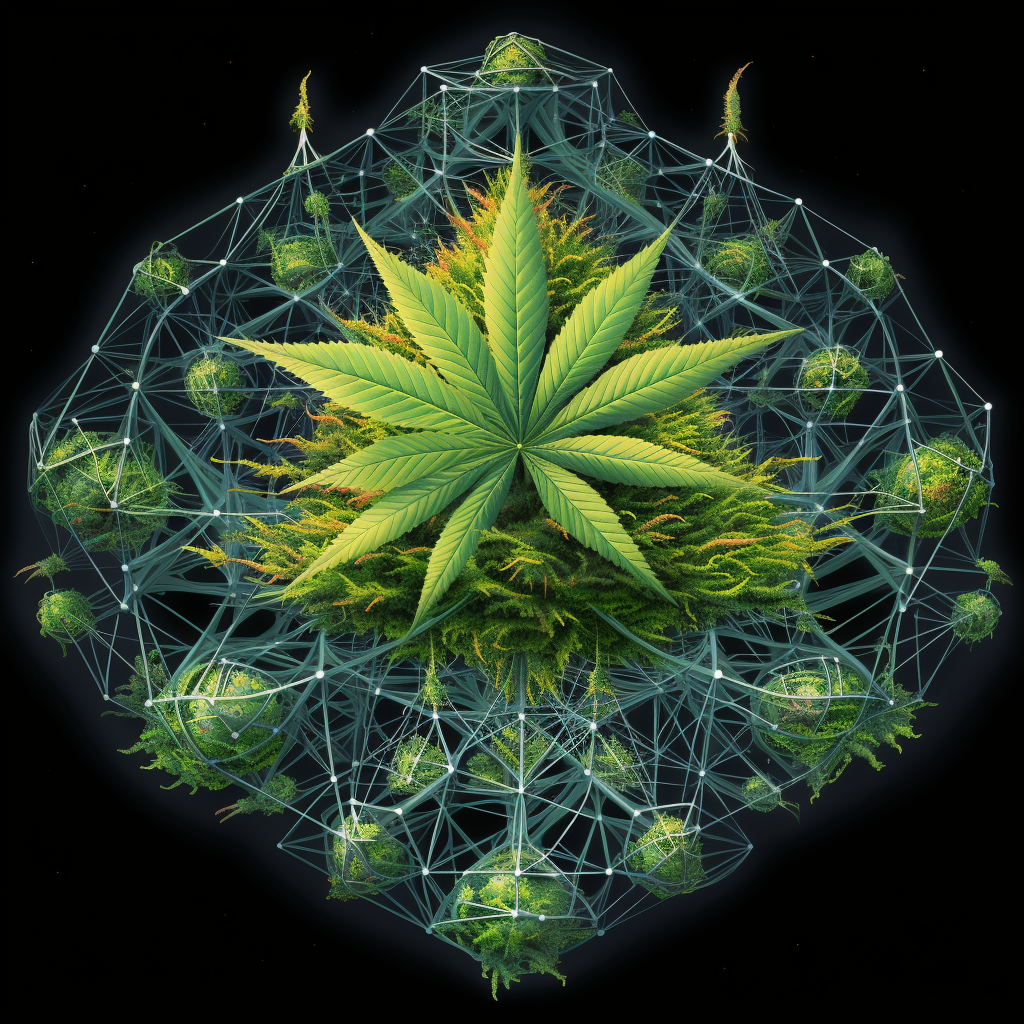
Properties and Psychoactive Potential of THCp
THCP has showcased an unparalleled affinity for CB1 receptors, being 30 times more potent than THC. This elevated affinity implies that THCP could potentially exhibit stronger psychoactive properties. Altering physiological and behavioral states more significantly than its counterparts. Preliminary studies reveal that THCP can induce effects similar to THC but at lower doses. Emphasizing its potential impact on the human body and mind.
Extensive Research and Analytical Approaches
The emergence of THCP has spurred extensive research, involving the analysis of diverse cannabis samples and chemotypes. Researchers are employing advanced analytical methodologies to accurately identify and quantify THC-P and other emerging cannabinoids. This approach is pivotal for understanding the presence and variability of these compounds across different cannabis strains and products.
Implications, Therapeutic Potentials, and Future Directions
The advent of THCP has profound implications, prompting a reevaluation of the therapeutic potentials of newly discovered cannabinoids. It necessitates deeper exploration to fully comprehend the properties, effects, and therapeutic applications of THC-P. The exploration of THCP and analogous compounds is crucial for optimizing their therapeutic benefits.
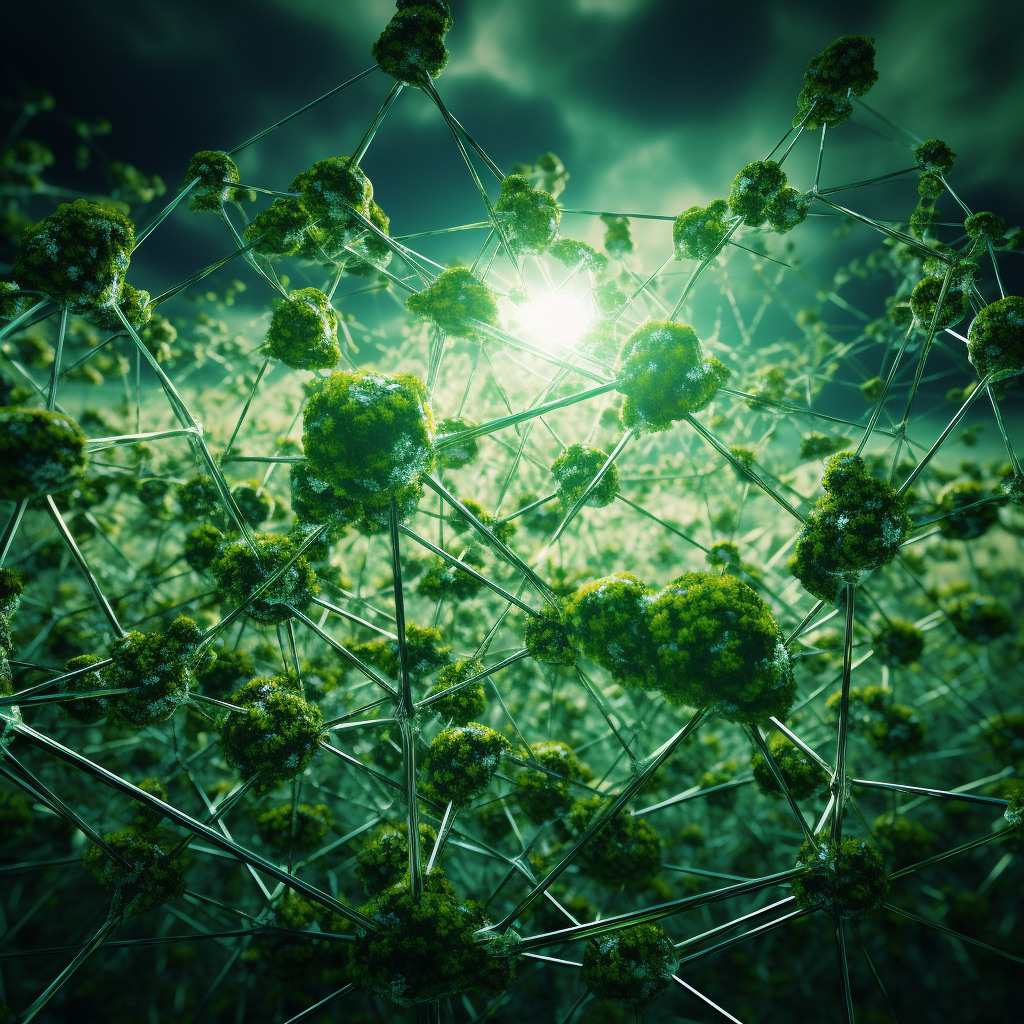
Regulatory Considerations and Challenges
The discovery of THCP also raises important questions regarding its regulatory status and the challenges associated with the classification of new cannabinoids. Addressing the regulatory challenges and uncertainties surrounding THCP is crucial for fostering innovation and ensuring the integrity and sustainability of the cannabinoid industry.
Conclusion and Forward Outlook
The discovery of THCP marks a significant milestone in cannabinoid research. The potential psychoactive properties and the extraordinary affinity of THC-P for CB1 receptors have expanded the scope of cannabinoid research. The insights gained from studying THCP are likely to drive innovations and advancements in cannabinoid science and medicine.
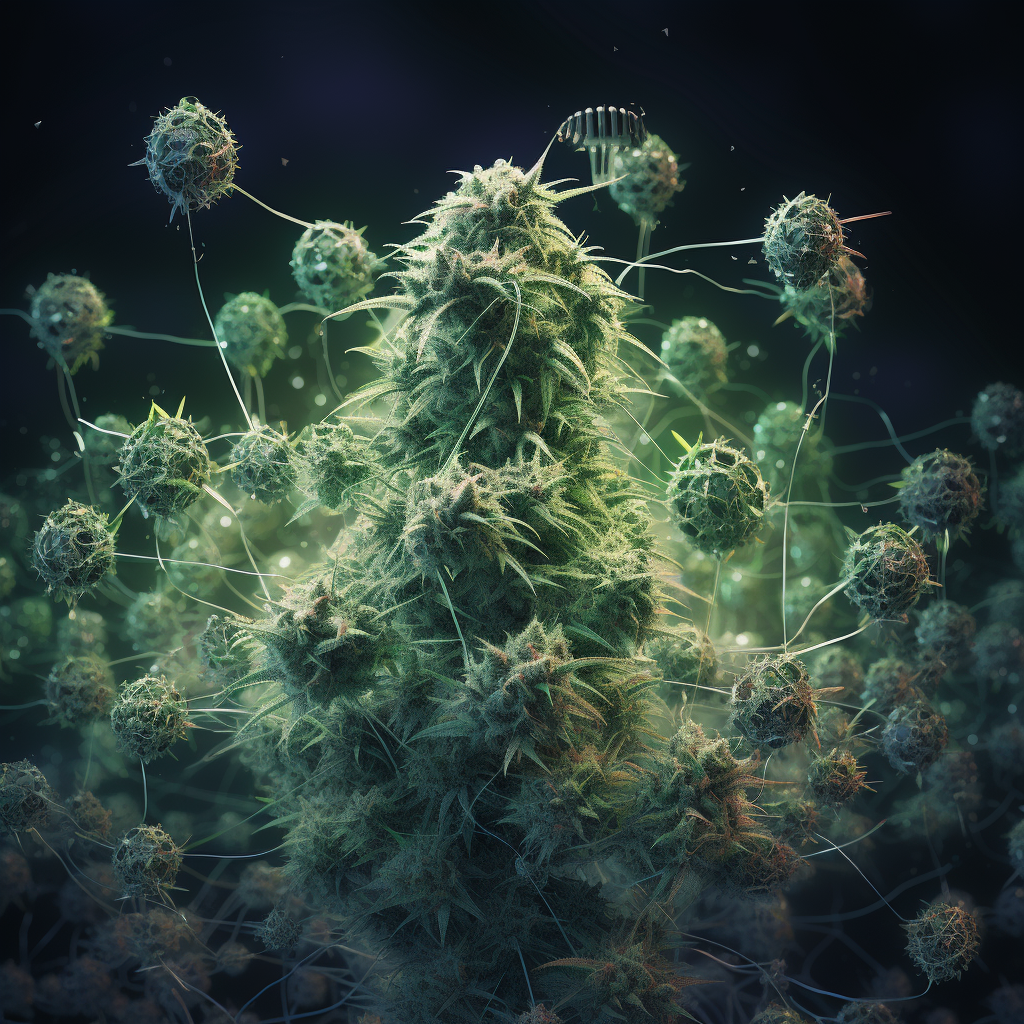
Detailed Exploration of THCp’s Discovery
The identification of THCP in the FM2 cannabis variety was a result of meticulous research and advanced analytical methods. Including high-resolution mass spectrometry and stereoselective synthesis. Scientists performed an ad hoc stereoselective synthesis to obtain analytical standards for quantitative purposes, allowing for the targeted analysis of both pentyl (C5) and heptyl (C7) CBD- and THC-type compounds in forty-nine cannabis samples representing four different chemotypes.
THCP’s Impact on Cannabinoid Science
The discovery of THCP has not only expanded the inventory of known phytocannabinoids but has also raised questions regarding their presence and abundance in cannabis inflorescence or derived products. The attention towards cannabis is particularly due to the well-known class of phytocannabinoids, which includes CBD and THC. The new homologs differ from canonical compounds in the length of the alkyl side chain on the resorcinyl group, adding a new layer of complexity to cannabinoid chemistry.
The Future of THC-P Research
The scientific community is now tasked with delving deeper into the properties, effects, and applications of THCP, exploring its biological activity, interaction with cannabinoid receptors, and potential therapeutic benefits. The discovery of THCP underscores the need for continued research and development in the field of cannabinoid science to fully comprehend the complexities and potentials of these diverse compounds.
THCp Buds: Angel’s Harvest
Discover the purity of THCP Buds: Angel’s Harvest, featuring premium hemp buds infused with THCP.
These un-terpened buds offer a clean, natural aroma, making them a versatile choice for those seeking a pure cannabinoid experience.
THCp Buds: Banana
Enjoy the delightful blend of THCp Buds: Banana, available in 3.5g and 10g.
Experience the sweet banana taste mixed with a playful tang, offering a fun and aromatic twist on your hemp enjoyment.
THCp Buds: Cherry Gorilla
Discover the rich, fruity aroma of THCp Buds: Cherry Gorilla in 3.5g and 10g options.
Perfect for those who cherish deep cherry notes paired with the robustness of Gorilla genetics, offering a distinctive and enjoyable hemp experience.
THCp Buds: Forbidden Fruit
Indulge in the exotic flavors of THCp Buds: Forbidden Fruit, offered in 3.5g and 10g sizes.
This strain delivers a mysterious and tantalizing aroma, ideal for those seeking a unique and enchanting experience.
THCp Buds: Green Hornet
Experience the tropical vibes of THCP Buds: Green Hornet, a premium selection of hemp buds infused with THCP.
Featuring a vibrant tropical and citrus aroma, these buds deliver a flavorful and potent cannabinoid experience.
THCp Buds: Pineapple Express
Experience the exhilarating blend of THCp Buds: Pineapple Express, available in 3.5g and 10g formats.
THCp Buds: Taste of Glory
Savor the bold flavors of THCP Buds: Taste of Glory with a fruity strawberry and banana terpene profile.
Infused with THCP, these premium buds are perfect for experienced users seeking a potent and flavorful experience.
THCp Get Beezy: Banana – 20g
THCp Get Beezy: Berry Gelato – 20g
THCp Get Beezy: Cherry Gorilla – 20g
THCp Get Beezy: Forbidden Fruit – 20g
Disclaimer: This blog is for informational and educational purposes only. We review and reference available studies and reputable sources; however, content may not reflect the most current research or regulations and should not be taken as medical, legal, or professional advice. We do not make or imply health claims. Products mentioned are not intended to diagnose, treat, cure, or prevent any disease and statements have not been evaluated by EFSA or the FDA. Effects can vary between individuals. Always consult a qualified healthcare professional before use and verify that any product or ingredient is lawful in your jurisdiction.






